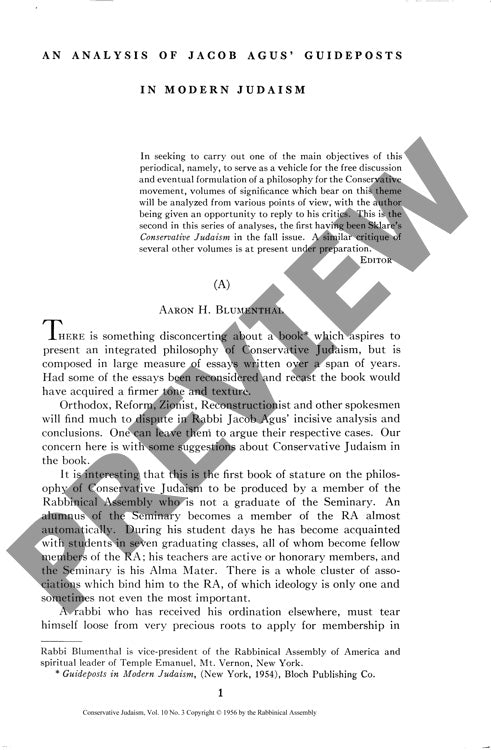An Analysis of Jacob Agus Guideposts In
Couldn't load pickup availability
Rabbi Jacob Agus' ambitious attempt to forge a comprehensive philosophy for Conservative Judaism reveals deep tensions at the heart of the movement's identity. Three prominent scholars - Aaron H. Blumenthal, Ira Eisenstein, and Marvin Fox - offer critical perspectives that illuminate both the innovations and contradictions in Agus' "Guideposts in Modern Judaism." As the first non-Seminary graduate to articulate Conservative philosophy, Agus brought a distinctive view emphasizing separation from Orthodox Judaism, particularly in his institutional proposals and approach to religious authority. Eisenstein's analysis of Agus' treatment of the God-Israel-Torah triad raises crucial questions about whether the work describes Conservative Judaism's reality or its aspirations. Fox's detailed examination exposes methodological weaknesses in Agus' effort to reconcile scientific thought with religious faith through principles of causality and polarity. While Agus boldly rejected Orthodox literalism, he simultaneously sought to maintain halakhic authority, advocating for democratic participation in religious law-making. However, his reliance on problematic scientific analogies to support theological positions, combined with oversimplified characterizations of opposing viewpoints, ultimately undermines his attempt to construct a coherent philosophical foundation for Conservative Judaism.

More Information
-
Physical Description
-
Publication Information
Published
ISBN
-
Publication Credits

